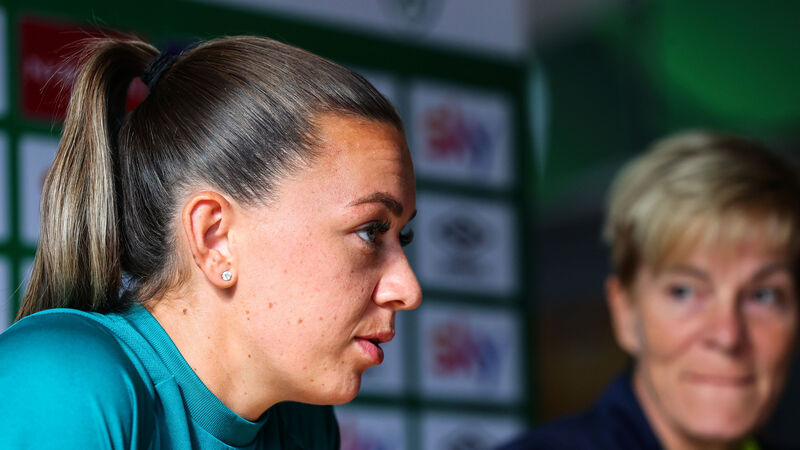Tommy Martin: A game freighted with almost unbearable significance

HUGE OPPORTUNITY: Katie McCabe and manager Vera Pauw. ©INPHO/Ryan Byrne
As decisive games go, the Republic of Ireland’s 2023 Women’s World Cup qualifier against Finland isn’t particularly decisive at all.
Sure, victory would book Ireland’s place in the playoffs. But after that begins a laborious quest straight from the pages of Tolkien, complete with a possible trip to New Zealand. That is the fate in store for the lowest ranked of the three successful teams to come through the UEFA playoffs, in which case Ireland would end up in the Inter-Confederation playoffs, taking on, say, the likes of Papua New Guinea and Paraguay. Then they would have to climb a volcano and defeat an army of demonic beasts in hand-to-hand combat.









